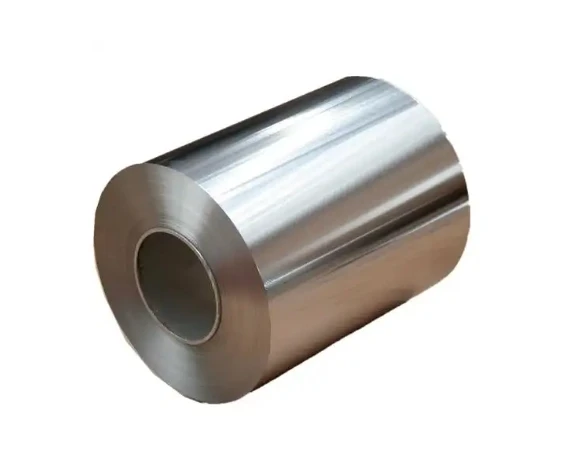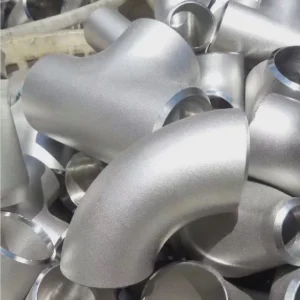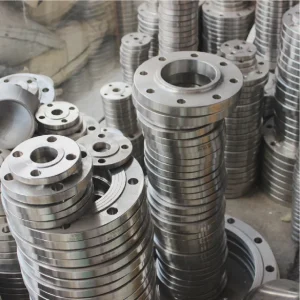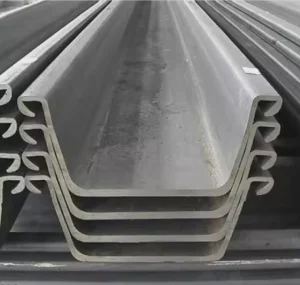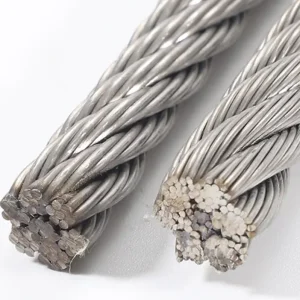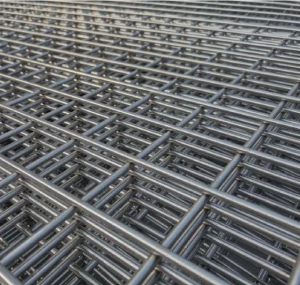Introduction
Aluminum is one of the most versatile materials used in manufacturing, and within the aluminum family, 1100 aluminum coil stands out as a widely used grade. Known for its excellent corrosion resistance, formability, and ductility, it has become a go-to material in many industries.
In this article, we’ll explore the Top 5 Surprising Industrial Applications of 1100 Aluminum Coil. Each section will detail the properties of 1100 aluminum and why it’s the best choice for the respective applications. We’ll also provide comparisons with other materials, including 1100 aluminum vs. 3003 aluminum coil and other related alloys, to give you a comprehensive understanding.
Overview of 1100 Aluminum Coil
Before diving into the specific industrial applications, let’s quickly review what makes 1100 aluminum coil so beneficial. 1100 aluminum is part of the 1000-series, which is known for its high purity (99% or more) and excellent formability. Its characteristics include:
-
Low strength but excellent corrosion resistance
-
Good workability, especially for intricate shapes
-
Good thermal and electrical conductivity
-
Non-heat treatable, which makes it ideal for applications where high flexibility is required
Its softness and malleability make it perfect for applications where high strength is not critical, but durability and resistance to the elements are essential.
1. Food Packaging Industry
1.1 Use of 1100 Aluminum Coil in Food Packaging
One of the most surprising applications of 1100 aluminum coil is in food packaging. Due to its non-toxic, corrosion-resistant, and lightweight properties, 1100 aluminum is commonly used to manufacture aluminum foil, trays, and containers for food packaging.
1.2 Why 1100 Aluminum is Preferred
-
Corrosion Resistance: 1100 aluminum does not react with food or moisture, ensuring that the contents remain safe.
-
Flexibility: It can be easily shaped into thin foils, providing excellent coverage for food products.
-
Lightweight: It helps reduce shipping costs while maintaining product integrity.
1.3 Example: Aluminum Foil for Packaging
1100 aluminum is commonly used in food packaging as aluminum foil. The lightweight and malleable nature of 1100 aluminum makes it ideal for wrapping products like chocolate, baked goods, and processed meats. Its ability to form tight seals ensures freshness and protects the food from contamination.
2. Electrical Conductors and Wiring
2.1 Electrical Applications of 1100 Aluminum
Due to its excellent electrical conductivity, 1100 aluminum coil is often used in the manufacturing of electrical conductors and wires. Aluminum is a popular material for electrical applications because of its low weight and high conductivity, making it ideal for long-distance power transmission and electrical wiring.
2.2 Advantages of 1100 Aluminum for Electrical Use
-
Good Conductivity: While copper is the preferred conductor for electrical systems, aluminum is often used as a cost-effective alternative in wiring.
-
Weight: Aluminum is much lighter than copper, making it easier to transport and install.
-
Corrosion Resistance: In electrical systems, corrosion can hinder conductivity. 1100 aluminum’s resistance to corrosion ensures longevity and optimal performance in various environments.
2.3 Comparison: 1100 Aluminum vs. Copper
| Property | 1100 Aluminum | Copper |
|---|---|---|
| Electrical Conductivity | 61% of copper | 100% |
| Density | 2.70 g/cm³ | 8.92 g/cm³ |
| Cost | Lower | Higher |
| Corrosion Resistance | Excellent | Moderate |
Table 1. 1100 aluminum vs. copper for electrical use.
3. Automotive Applications
3.1 Lightweight Components in Automotive Industry
In the automotive industry, weight reduction is a primary concern. 1100 aluminum coil is often used in lightweight automotive parts. These parts include interior panels, brake linings, and fuel tanks.
3.2 Benefits of 1100 Aluminum in Automotive Manufacturing
-
Weight Reduction: Aluminum’s low density makes it a perfect choice for reducing vehicle weight, improving fuel efficiency.
-
Corrosion Resistance: The material’s natural resistance to corrosion helps extend the lifespan of vehicle components.
-
Formability: 1100 aluminum can be easily formed into various shapes, making it a practical choice for complex automotive parts.
3.3 Example: Aluminum Fuel Tanks
1100 aluminum is commonly used in fuel tanks due to its lightweight nature, resistance to corrosion, and formability. By using aluminum in place of steel, manufacturers can create lighter vehicles that offer better fuel economy without sacrificing strength.
4. Reflective Surfaces and Lighting Systems
4.1 Use in Reflective Surfaces
1100 aluminum’s high reflectivity makes it an excellent choice for applications requiring light reflection. 1100 aluminum coil is often used to create reflective surfaces in lighting systems, mirrors, and other optical devices.
4.2 Advantages in Lighting
-
High Reflectivity: Aluminum reflects up to 80% of visible light, making it ideal for use in reflectors for lighting systems and flashlights.
-
Corrosion Resistance: It can withstand exposure to heat and moisture, making it ideal for outdoor lighting and street lamps.
-
Lightweight: Its low weight makes it easier to handle during installation.
4.3 Example: Aluminum Reflectors
1100 aluminum is commonly used in street lamps and vehicle headlights. Its high reflectivity ensures that light is distributed efficiently, providing better visibility while using fewer resources.
5. Medical and Pharmaceutical Equipment
5.1 Medical Applications of 1100 Aluminum
Surprisingly, 1100 aluminum is also utilized in the medical and pharmaceutical industries. It is used in drug packaging, medical devices, and surgical instruments.
5.2 Benefits of 1100 Aluminum in Healthcare
-
Biocompatibility: Aluminum is biocompatible and does not cause adverse reactions in most medical applications.
-
Lightweight: For medical devices and equipment that need to be portable, aluminum offers a lightweight solution.
-
Corrosion Resistance: Aluminum's corrosion resistance makes it ideal for use in devices exposed to moisture and bodily fluids.
5.3 Example: Medical Packaging
In the pharmaceutical industry, aluminum blister packs made from 1100 aluminum are used to package tablets and capsules. The aluminum prevents contamination, preserves freshness, and ensures the safety of medical products.
6. Comparison: 1100 Aluminum Coil vs. Other Aluminum Alloys
To help further understand the specific uses of 1100 aluminum, let’s compare it with other common aluminum alloys:
| Property | 1100 Aluminum | 3003 Aluminum | 5052 Aluminum |
|---|---|---|---|
| Corrosion Resistance | Excellent | Good | Excellent |
| Strength | Low | Moderate | High |
| Formability | Excellent | Good | Moderate |
| Weldability | Excellent | Excellent | Good |
| Cost | Low | Low | Moderate |
Table 2. Comparison of 1100 aluminum coil with other alloys.
Frequently Asked Questions
Q1: What is the main difference between 1100 and 3003 aluminum coil?
A1: The primary difference is in strength. While both alloys have excellent corrosion resistance, 3003 aluminum has higher strength due to the addition of manganese. However, 1100 aluminum has better formability and is more cost-effective for applications requiring low strength.
Q2: Can 1100 aluminum coil be anodized?
A2: Yes, 1100 aluminum can be anodized. The anodization process increases the alloy's corrosion resistance and enhances its appearance, making it suitable for decorative purposes.
Q3: Is 1100 aluminum coil suitable for structural applications?
A3: 1100 aluminum coil is not recommended for structural applications that require high strength, as it has a low yield strength. However, it is ideal for applications where strength is not a primary concern, such as in food packaging or electrical wiring.
Q4: What are the typical applications of 1100 aluminum in the automotive industry?
A4: In the automotive industry, 1100 aluminum is typically used for lightweight parts such as interior panels, heat exchangers, and fuel tanks. Its low weight and corrosion resistance make it ideal for these applications.
Q5: How does 1100 aluminum compare to copper in electrical conductivity?
A5: 1100 aluminum has about 61% of the electrical conductivity of copper, which is why it is often used as a cost-effective alternative for electrical wiring, especially in large-scale projects like power lines.
Q6: Can 1100 aluminum coil be used in medical applications?
A6: Yes, 1100 aluminum is used in the medical and pharmaceutical industries for packaging and certain medical devices. Its biocompatibility, corrosion resistance, and lightweight properties make it a good choice for these applications.
Conclusion
1100 aluminum coil may not have the high strength of other aluminum alloys, but its versatility, corrosion resistance, and formability make it an essential material in many industries. From food packaging and electrical conductors to automotive applications and medical devices, 1100 aluminum serves a broad array of purposes. Understanding its specific uses and properties can help you make the best material choice for your next project.


